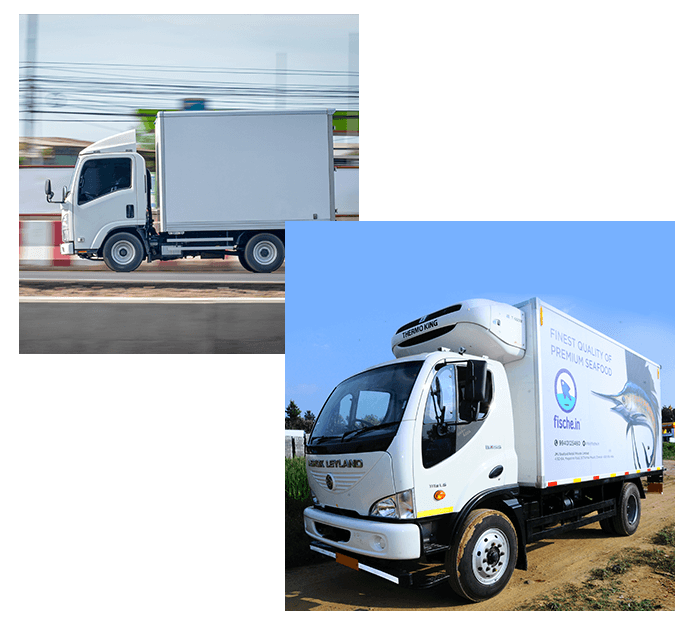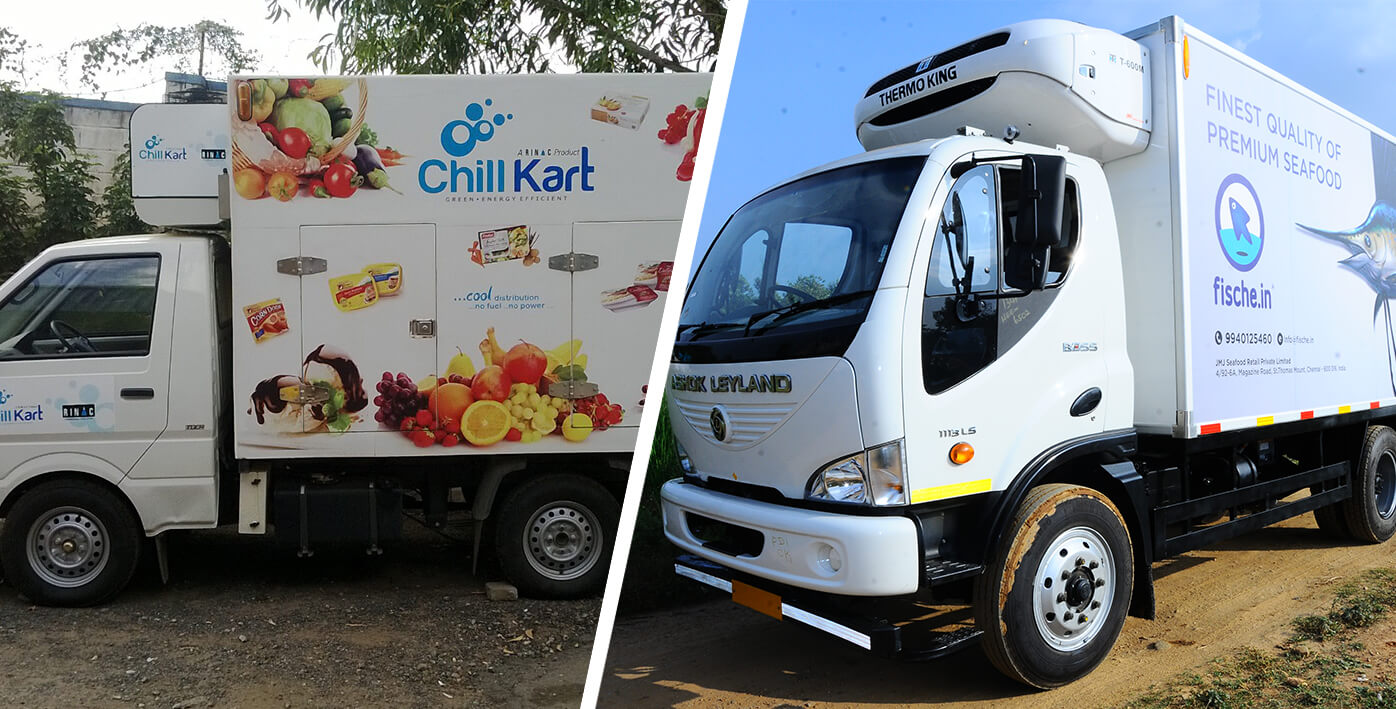Refrigerated Transportation: All You Need to Know

Admin
May 21, 2022


May 21, 2022

Refrigerated transportation is impacting our day-to-day lives—be it fruits, vegetables, meat, dairy products, or pharmaceutical products. With globalization and impetus on food safety, refrigerated transportation has become essential in the transportation of perishable items. It is evident from a recent estimate that the market is expected to reach USD 23.1 billion by 2027.
In this article, we will discover more about refrigerated transportation, why it is necessary and how the technology is changing to make way for eco-friendly, economical refrigerated trucks.
Reefer trucks or refrigerated transportation is a special shipping method wherein temperature-controlled vehicles with built-in refrigeration are used. These vehicles help maintain the required temperature during transportation to prevent the deterioration of perishable items.
Refrigerated transportation first originated in the 1800s when ice and salt were used for transporting cargo in low-temperature conditions. This method evolved into efficient refrigerated transportation at the end of the 20th century, resulting in the emergence of the cold chain logistics industry.
Cold chain logistics, in fact, is more than transporting the items in a temperature-controlled environment. It involves the technology and processes that ensure the safe transportation of temperature-sensitive perishable items throughout the supply chain.

Refrigerated transportation has a significant role in food safety, compliance, and maintaining supply and demand. Here are some of the benefits.
There are many items that have short shelf-life and lose value on deterioration. That is why a lot of businesses rely on refrigerated transportation including fresh produce (fruits and vegetables), meat, dairy, confectionery, seafood, fish, meat, medical or pharmaceutical products personal care products, and more.
There is an increasing demand for perishable items but the safe transportation of these items is equally important. That is refrigerated transportation can help transfer the items between different locations safely and efficiently quickly.
Owing to food safety issues with the objective of avoiding contamination, deterioration or issues related to food poisoning, it has become imperative for businesses to make refrigerated transportation a critical aspect of their supply chain.
The traditionally used reefer trucks pose potential problems including
That is why businesses need to move beyond conventional transportation options to make way for greener, economical, and more efficient eutectic trucks.
Eutectic refrigeration relies on the use of eutectic solution which acts as a cooling source. It is different from the traditional cooling systems that involve the expansion of refrigerant gas.
Eutectic refrigeration involves the use of hollow tubes, plates, or beams that are filled with eutectic brine for maintaining the required low temperatures. These plates are charged using mains when not in use. The charged plates store the cold energy and cool the surrounding area by gradually releasing energy in the form of cooler air.
Most importantly, the refrigerated body is usually independent and not connected to the chassis. This helps in maintaining a stable temperature at all times. The main benefit of using eutectic plates is that these charged plates offer an environment-friendly, quick, and reliable way to cool the surrounding area. This means even with frequent door opening, low temperature can be maintained for a stipulated duration.
Eutectic refrigeration involves the use of hollow tubes, plates, or beams that are filled with eutectic brine for maintaining the required low temperatures.
Rinac as a leader in cold chain solutions has introduced ChillKart, a eutectic refrigerated truck for the greener, economical alternative to reefer trucks. These trucks require no fuel and energy to maintain low temperatures/ Moreover, the insulated truck body is made of glass-reinforced plastic (GRP) and rigid polyurethane foam (PUF) sandwich panels manufactured using patented formo-bonding technology with a CFC-free foaming process. This enables these trucks to save your annual energy expenses by almost 50%.

Rinac offers two variants of eutectic trucks.
Apart from these, Rinac also offers optional features such as strip curtains, produce chute or side doors, lighting options, shelving and rack systems, refrigeration system, and multi-temperature application capabilities.
To know more about how Rinac’s ChillKart is helping businesses transform the logistics of perishable and short shelf-life perishable items, visit Refrigerated Transportation.

October 6, 2025

September 29, 2025

September 24, 2025